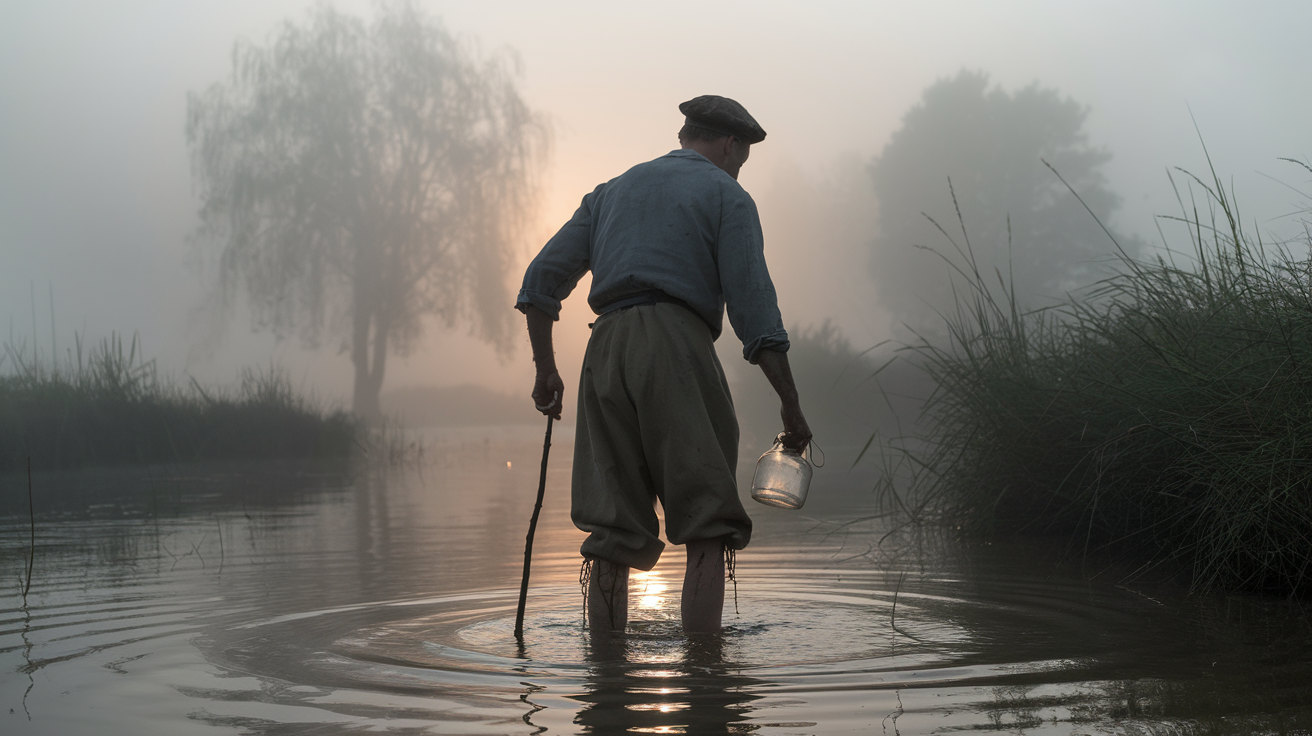Your ancestors weren’t pushing papers in air-conditioned offices. They were out there. Hustling. Grinding. Sometimes in ways you can’t even imagine.
Let’s dive deep into 8 insane jobs that put food on the table back in the day. These aren’t your run-of-the-mill occupations. They’re the kind that’ll make your next family reunion a lot more interesting.
Warning: This ain’t for the faint of heart. But if you’re serious about understanding your roots, you need to know this stuff.
1. Rat Catcher
Rats. Nasty little disease-carriers. Someone had to deal with them. That someone might’ve been your great-great-grandpa.
Rat catchers were the unsung heroes of urban life. These badasses kept cities from drowning in rodents. How? Any way they could.
Traps? Check. Poison? You bet. Trained dogs? Absolutely.
Their toolkit was diverse. Some used ferrets to flush out rats. Others relied on complex systems of baits and lures. The best rat catchers were part exterminator, part problem-solver, and part urban legend.
Imagine finding “Rat Catcher” on a dusty old census record. Sounds crazy, right? But for many families, it was a proud profession. Passed down from father to son.
Think about that next time you complain about your 9-to-5. Your ancestor might’ve been elbow-deep in rodents to keep food on the table.
2. Knocker-Up
No, not what you’re thinking. This job was all about waking people up. That’s it. That was the whole gig.
Before alarm clocks were a thing, how’d you make sure you didn’t sleep through your shift at the factory? You paid a knocker-up to wake you.
With what? Long sticks. Pea shooters. Small hammers. Some even used large bamboo poles to reach upper-story windows.
Imagine that. Your whole job is making sure other people do theirs. Talk about pressure.
Knocker-ups were common in industrial towns. Places where being late to work could cost you your job. They were the human alarm clocks of the working class.
Knocker-ups weren’t just clock-punchers. They were community pillars. They knew everyone’s schedules, habits, and probably a few secrets too.
3. Resurrectionist
Grave robbers. But make it academic.
Resurrectionists dug up bodies to sell to medical schools. Illegal? Kind of. Necessary? Absolutely.
Doctors needed to learn anatomy. Bodies were in short supply. Supply and demand, baby. It was a ghoulish business, but it pushed medicine forward.
Your ancestors might’ve been criminals. Or pioneers of medical science. Maybe both. It’s the kind of family history that makes for awkward Thanksgiving conversations.
Resurrectionists worked in teams. They had lookouts, diggers, and transporters. It was organized crime for the betterment of medical knowledge.
Here’s the kicker for you family historians: Resurrectionists often used fake names. If you hit a dead end in your research, consider this. Your great-great-grandpa might’ve been living a double life.
4. Mudlark
Picture this. You’re knee-deep in river mud. Searching for anything valuable. Coal. Metal scraps. Coins dropped by careless merchants.
That was a mudlark’s life. Dirty. Dangerous. Desperate.
Rivers were toxic dumping grounds. Mudlarks risked it all for a few coins. It wasn’t just a job. It was survival.
Most mudlarks were kids or women. The poorest of the poor. If you find a mudlark in your family tree, you’re looking at real rags-to-riches stories.
Some mudlarks made good. They found valuable artifacts or rare coins. A lucky find could change a family’s fortunes overnight.
Mudlarking still exists today. But now it’s a hobby for history buffs. Your ancestors? They were the original urban archaeologists. Out of necessity.
5. Lamplighter
Before electricity, cities were dark. Scary dark. Lamplighters brought the light. Every evening. Rain or shine.
They’d climb, light, and maintain street lamps. By hand. Every single one.
Lamplighters weren’t just workers. They were guardians of the night. They kept the shadows at bay and made cities livable after dark.
Here’s a fun fact for your family research: Lamplighters often had other day jobs. Look for records of night watchmen, policemen, or even town criers. Your ancestor might’ve been burning the candle at both ends. Literally.
Lamplighters knew every street, every alley. They were the eyes and ears of the community. Some even became local celebrities.
The job didn’t die out overnight. Even as electric lights came in, many cities kept lamplighters on to maintain the new systems. If your family stayed in one place for generations, you might find lamplighters across several decades.
6. Leech Collector
Blood-sucking parasites were big business. No, not lawyers. Leeches.
Leech collectors supplied the medical industry. Bloodletting was all the rage. Doctors couldn’t get enough of these slimy suckers.
The job? Wade into ponds and marshes. Let leeches attach to your legs. Pluck them off. Repeat.
It was as gross as it sounds. But it paid. Sometimes pretty well.
Leech collecting was often a family business. Kids would help their parents gather these medical marvels. It’s the kind of family bonding you don’t see in Hallmark movies.
The industry peaked in the 19th century. But some leech collectors kept at it well into the 20th. Modern medicine still uses leeches, believe it or not.
7. Gong Farmer
Brace yourself. This one’s nasty.
Gong farmers cleaned out cesspits and privies. In other words, they dealt with everyone’s crap. Literally.
It was dangerous. Toxic fumes could kill. The smell was ungodly. But someone had to do it.
Gong farmers worked at night. They’d cart waste out of the city. It was a crucial job for urban sanitation.
Here’s the silver lining for family historians: Gong farmers were licensed. Check city records. You might find detailed information about your ancestor’s… let’s call it “professional activities.”
Despite the stigma, gong farming could be lucrative. Some even became wealthy. If you find a sudden jump in social status in your family tree, consider this dirty little secret.
Gong farmers often passed the job down through generations. It’s not the kind of family heirloom you brag about, but it kept food on the table.
8. Ice Cutter
Before refrigerators, how did people keep things cold? Enter the ice cutter.
These hardy souls harvested ice from frozen lakes and rivers. They used huge saws to cut blocks of ice. It was cold, dangerous work.
Ice cutting was seasonal. In the winter, they’d harvest. In the summer, they’d distribute. It was a year-round operation.
For genealogists, ice cutters are fascinating. They often moved with the seasons. You might find your ancestors popping up in different locations depending on the time of year.
Ice houses were big business. If your family owned one, you were the equivalent of today’s tech moguls. It was cutting-edge technology for its time.
The job didn’t disappear overnight. Even as mechanical refrigeration came in, many people still preferred “natural” ice. Your great-grandpa might’ve been part of this ice age.
Final Thoughts
So there you have it. Eight insane jobs your ancestors might’ve had. Next time you’re knee-deep in census records, keep an eye out for these wild occupations.
Remember, every weird job title is a story waiting to be told. Your family tree isn’t just names and dates. It’s a treasure trove of wild tales and unsung heroes.
Now get out there and dig deeper. Your ancestors were tougher than you think. And a whole lot more interesting.


